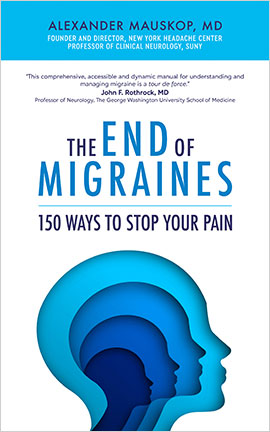Vertigo is unpleasant to say the least. True room spinning vertigo is, in my opinion, one the most hideous symptoms someone with vestibular migraine can experience. Imagine turning your head and suddenly feeling and seeing the world violently spinning around you. Like you’re seeing the world from the perspective of a child’s top spinning on a table. It leaves you feeling helpless as you clumsily feel your way to the bathroom to be sick and wait for it to end. Could a natural supplement like magnesium for vertigo really help to ease this sensation of spinning?
For many of us with vestibular migraine, the dizziness that lingers after vertigo has ended is debilitating as well. The sensations that come with dizziness like rocking, swaying, disorientation, dropping sensations and feeling like we’re walking on marshmallows are all repulsive daily vestibular migraine reminders. Can magnesium for dizziness help reduce these intrusive symptoms? Read on to learn how this important mineral impacts vestibular migraine.
While Migraine Strong writes about the latest in migraine treatments, this is not medical advice. We are patient educators and all information you read should be discussed with your doctor.
What is vertigo
Vertigo is generally referred to as the perception of rotational movement or spinning when you’re not actually moving. It is not a disease itself. It’s a symptom of a disease or medical condition. If you have vestibular migraine, chances are you’ve experienced it and understand this absolutely debilitating symptom. It interferes with our ability to function, to work and with our quality of life. Treatment will likely take a multi-strategy approach that could include medication, supplements, a change in diet and vestibular rehabilitation therapy. Because it is a symptom, the goal here is to treat the underlying disease. Treating and gaining control over your vestibular migraine, will in turn control the episodes of vertigo and daily dizziness that come with it. One of the best tolerated, natural treatments for vertigo and dizziness is magnesium.
There are two types of vertigo
Let’s dive in a little deeper and discuss the types of vertigo. To understand how magnesium helps vestibular migraine, we must first understand that there are actually two types of vertigo.
- Peripheral vertigo is vertigo that stems from a problem in the inner ear. It is the most common type of vertigo. It can be caused by misplaced crystals in the inner ear, like in BPPV (Benign paroxysmal positional vertigo). Inflammation of the inner ear, like in Labyrinthitis. Or a build up of fluid in the inner ear, like in Meniere’s Disease. Peripheral vertigo tends to come on and pass very quickly.
- Central vertigo is vertigo that refers to a problem in the central nervous system. It stems from a problem in the brain or in messages traveling to and from the brain. While central vertigo also comes on quickly it tends to last much longer than peripheral vertigo. It occurs in neurological conditions like Migraine, Stroke and Multiple Sclerosis. Dizziness symptoms such as rocking, swaying, tilting, dropping, feelings of being pushed toward the floor etc. are also commonly experienced. Central is the type of vertigo experienced most often in Vestibular migraine. (3.)
Magnesium for peripheral vertigo
Growing evidence is beginning to build linking a vitamin D and magnesium deficiency and vertigo, specifically peripheral vertigo. As mentioned earlier, one example of peripheral vertigo is benign proximal positional vertigo, also called BPPV. BPPV simply means misplaced crystals in the inner ear. Those diagnosed with vestibular migraine are more prone to frequent BPPV episodes than our healthier counterparts.
Having your magnesium and vitamin D levels checked seems like it could be beneficial here. The problem is that the most common magnesium test, Serum Magnesium is a poor indicator of our true magnesium status. This is because the body does all it can to keep levels in the “normal” range. This means your results can show in the normal range even when you may still be chronically low. You may still benefit from treating a magnesium deficiency for vertigo even if you’ve had a blood test stating you’re not deficient. Note that in the following studies it must be taken with vitamin D3 for best absorption results in using magnesium for peripheral vertigo. (1.) (2.)
Magnesium for central vertigo
Improving a deficiency is not the only reason to consider magnesium for vertigo relief. Your goal is to calm down the pain pathway in the brain. Dr. Alexander Mauskop, director and founder of the New York Headache Center wrote the article Why All Migraine Patients Should Be Treated With Magnesium. (4.) In it he stated magnesium can reduce the spreading of cortical depression. It’s inexpensive, highly effective and has generally few side effects. You can read much more about using magnesium for migraine in his new book The End of Migraines: 150 Ways to Stop Your Pain.
Migraine experts like Dr. Andreou and Dr. Gepetti who spoke at the 2019 Migraine World Summit have similar advice. In their summit talks both stated that magnesium blocks one of the glutamate receptors in the brain. Glutamate is the molecule that drives the pain system, so magnesium blocks that excited pain pathway. Those with migraine may need higher doses of magnesium to block glutamate activity in the central nervous system. Magnesium takes control over this system by reducing the pain signals it sends helping us recover from excessive pain. The exciting news is that for me, it has not only calmed down pain, but my daily dizziness as well.
While magnesium deficiency and vertigo seems to be linked, you do not have to be deficient to benefit from additional magnesium.
So what are the best forms & ways to use magnesium for dizziness?
Below you’ll find my favorite ways to be sure I’m getting enough magnesium for dizziness. I follow the magnesium dosage recommendations from Johns Hopkins Headache Center. In the beginning I took 800mg per day. Now that my symptoms are controlled, I have been able to save a little money by backing off that dose. Now I take 240-360mg a day with added foot soaks and topical magnesium on bad days.
Oral magnesium supplements for vertigo & dizziness
Magnesium glycinate
Pure Encapsulations Magnesium glycinate- If you’re a member of our Migraine Strong Facebook group then you know I’ve been touting my success with Pure Encapsulations magnesium glycinate for years. When I first got sick my doctor recommended I start supplementing with magnesium. But he stopped short of recommending a brand or form. As a result, I purchased an inexpensive drug store brand and noticed no reduction in my debilitating daily dizziness.
Honestly, magnesium oxide is used most often in migraine studies, but that form didn’t work for me. So I scoured the internet researching quality supplements which lead me to find this clean brand and calming form. At the high dose we need to calm our over sensitized pain pathway and hyper-responsive dizzy brains, magnesium glycinate is the least likely to cause tummy upset. It’s so very highly absorbable & wonderfully calming. I often find myself taking deep relaxing breaths shortly after taking it. I absolutely believe magnesium glycinate played an important roll in eliminating the daily dizziness that once left me housebound.
Magnesium threonate
Pure Encapsulations CogniMag- This form (magnesium threonate) is said to be the only form of magnesium that crosses the blood brain barrier. Now that my symptoms are under control I enjoy this energizing form of magnesium for dizziness. I take it in the morning to help relieve brain fog and morning grogginess from taking nortriptyline. There is nothing that says you can’t mix forms of magnesium. Taking an energizing form in the morning and a calming form at night is a great option. If you’re still experiencing daily dizziness consider just using calming forms of magnesium until your symptoms are more controlled. Use magnesium for dizziness to meet your personal needs. If you mix forms of magnesium just avoid going over the daily dose recommended by your doctor.
At the time of publication Pure Encapsulations CogniMag is out of stock and on backorder. Try Magtein Magnesium Threonate by Teraputics for an inexpensive, clean option.
Transdermal magnesium for vertigo and dizziness
Magnesium chloride
Magnesium Chloride Flakes- One of my most favorite forms of transdermal magnesium is magnesium chloride. Studies show it’s just a bit more highly absorbable than magnesium sulfate other known as Epsom salts. This form is perfect for anyone having difficulty with taking magnesium orally. Since it completely bypasses your digestive tract there is very little risk for tummy upset. I absolutely love it for soaking in the tub or evening foot soaks. An evening foot soak ritual is especially beneficial for those with daily dizziness due to vestibular migraine or chronic head pain.
When my dizziness first began to fade, it would always kick back up as I encountered more stimulation throughout the day. Soaking my feet in magnesium chloride flakes helped kick it right back out. It was an amazing strategy for me in ending my daily dizziness. It’s a great way to boost your magnesium levels and practice daily stress reduction which is also beneficial to calming down chronic symptoms. For the most relaxing foot soaks purchase a warming, bubbling foot spa from Amazon. Throw a handful of magnesium chloride flakes into the warm water and soak your feet for about an hour each evening. Just be sure to keep polish on your toenails or rinse your feet after so it doesn’t dry your nails out with repeated use.
Magnesium sulfate
Peace Love Rally magnesium roller balls- Another wonderful form of transdermal magnesium are these magnesium roller balls by Peace Love Rally. These roller balls are seriously delightful. They’re perfect to keep in your migraine attack relief kit or in your bag. That way you’ll have a boost of magnesium when and wherever you need it. As mentioned, my dizziness used to kick in as my day went along. I keep magnesium roller balls in my desk at work so I have it for times when soaking me feet isn’t possible. You can choose roller balls with or without essential oils included. My favorite is the deep therapy roller ball which includes the added pain relief of peppermint and tonka for added cooling sensation. Use code MIGRAINESTRONG to save 10% on your purchase.

Migraine Strong Supplement Dispensary
Check out the supplement dispensary on our website for many more magnesium products and brands. You’ll receive a discount on your purchase along with special promotional savings.
Considering supplementing with magnesium for vertigo and dizziness is a strategy worth exploring. It’s important to note that just because it’s natural doesn’t mean it will be safe for everyone. Plan on talking to your doctor about magnesium forms and dosage. Whether your personal goal will be to replenish a deficiency or to calm down the hyper-responsive pain pathway in your brain or both. It’s a vestibular migraine treatment strategy you’ll want help from your doctor implementing.



Important question:
When you say “In the beginning I took 800mg per day.”, do you mean you took 800mg before or after considering bioavailability of the supplement?
For example, bioavailability of magnesium oxide is 4% (96% wasted) versus it is 10% for magnesium citrate. If 800mg is of “bioavailable” magnesium, one would have to eat it by several spoonfuls daily, but it you take 800mg before bioavailability is considered, then you end up providing your body with widely different amounts of magnesium depending on your choice of magnesium supplement.
Please comment. Thank you,
Maria Ku
I use Pure Encapsulations brand and based my dose on the mg on the bottle which is 120mg. So I took about 6 capsules daily. I also supplemented with topical magnesium like foot soaks, roll ons, body was etc. It definitely helped to supplement with foot soaks though mg dosage is very tough to measure there. Xo, Jenn
Thanks so much, Jennifer! My vestibular migraine dizziness is fairly low level, thanks to Nortryptyline and supplements, but recently I have had heart palpitations after taking magnesium glyconate. I switched to the citrate form and seem to do better with that, though I have to be very careful and take an extremely low dose. Of course, I will consult my doctor, but I’m just wondering if anyone else has ever experienced this? Thank you so much!
Nancy
Nancy – are your heart palpitations due to the magnesium glycinate or from the Nortryptyline? Here’s why I ask. I see a cardiologist for a congenital heart issue and had some heart palpitations this past summer and magnesium chloride was recommended as a supplement. I recently developed what might possible be vestibular migraines. I’ve been seeing an ENT and he suggested to change to magnesium glycinate and also add riboflavin as supplements. I was in his office just this morning to review some recent tests and we talked about nortryptyline and he said one of the side effects was heart palpitations. Then I read your comment so was just curious. I’m still trying to figure out my issues and am hoping the supplements will help to give me some relief. My doctor also mentioned SSRIs as a possible medicine. I hope you are finding relief 🙂
I just started Pure Encapsulations magnesium glycinate. I have been taking just one 120mg tablet for two days after a full meal and a glass of water. Really rough gastrointestinal symptoms. I’ve tried magnesium oxide as well…same result. Have u heard of any reducing the dose to half and then gradually building up over time to better tolerate?
Hi Holly, Yes absolutely many reduce the dose, start very low and work their way up. Magnesium glycinate is said to be the easiest on the tummy. If you find a low dose troublesome there are many transdermal options to chosse from. I love magnesium chloride foot soaks and Peace, Love, Rally magnesium roller balls. xo, Jenn
Hi there – I’ve been having magnesium IV drips have only had 2gram so far it hasn’t got rid of my dizziness, is that too small a dose?
Hi Marie- I are not a doctors or pharmacists. Some resources suggest a higher amount but there may be reasons that your doctor is giving you 2 grams. Also, with vestibular migraine, symptoms tend to improve over time and require other interventions mentioned in our Treatment Pie article. Fingers crossed that something helps you soon.
Hi Jennifer , so throughout your process you didn’t take any medications ? I know we’re all different but I’m just curious is it possible to avoid meds .
Hi, can I ask how long it took to notice an improvement in your dizziness from the magnesium supplement? Thanks 😊
It’s hard to know exactly how long it took because I used a multi-strategy treatment plan. Overall for vestibular migraine I feel like it takes a while for our brains to “calm down and recover”. My advice is to be consistent for several months before throwing in the towel.
Best, Jenn
Jennifer, for the roller balls, how did you use them? Did you use for neck pain or just roll them all over your body 😂? I have one and just like ideas on how I can use them…
Hi Karen! You aren’t the only one with this question, so I wrote this to help. I hope you feel better https://www.migrainestrong.com/migraine-stick/
What do you think of magnesium gel?
Magnesium gel may be helpful if you can’t take an oral supplement. The options I’m most familiar with are made of magnesium chloride.
Hi there! I used to take a preventative medicine (Nortriptylene) and progesterone cream to eliminate my central vertigo, but I’ve been struggling after giving birth to my first baby. I haven’t gone back on Nortriptylene because I wanted to try natural approaches so I have been taking my progesterone, but it takes a while to work. I have been taking magnesium since reading your article, so probably about a month. I was just wondering if you remember how long you were taking it before you felt a difference. I know everyone is different but I’m in need of some encouragement! Thanks. 🙂
Yes, magnesium often takes several weeks to help replenish your body and make a difference. This has other suggestions that might help. I hope you find relief soon. Congratulations on the birth of your baby! https://www.migrainestrong.com/dizziness-relief-tips-advice-from-vestibular-patients/